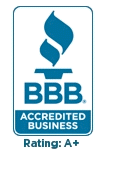If you’re choosing a live telephone answering service for your average business, then your focus should probably be on making sure the operators of any service you’re considering are courteous and well trained in phone etiquette. You might want to ask prospective companies how long a phone may ring without being answered (three rings is considered the polite max), how long a customer might be placed on hold (one unique survey of more than 2,500 consumers found that nearly 60% thought a minute of hold time was too long), or what kind of qualitative training operators receive (tone is actually the most important skill in telephone etiquette).
But if you’re looking at medical answering services, you’ll need to worry about all that and more. Here are five questions you should ask any medical answering service you’re considering:
1. Are Your Operators Trained to Call Emergency Services?
It’s extremely important that the operators at a medical answering company know when it’s time to dispatch emergency vehicles rather than call you in the middle of the night about a patient’s chest pain. This ensures both that you’re not bothered unnecessarily and that patients get the care they need.
2. How Do Your Operators Ensure Accuracy?
Accuracy matters in any business, but that’s normally a matter of losing or gaining money. In a medical setting, accuracy is literally life or death.
3. What Privacy Protections Do You Have in Place?
There are not only professional guidelines, but also several laws, governing the way patients’ personal information is handled, stored and transmitted. Make sure you ask about secure text and email messaging, as well.
4. Can You Provide Overflow Answering as Needed?
Having an answering service after hours is a given for a healthcare facility of any kind. But as anyone who has worked in a doctor’s office knows, things can get crazy during the day, too. Ask if it’s possible to have a service handle overflow calls so that patients are never left hanging.
5. Will Your Operators Respond Well to Distraught Individuals?
Medical customer service needs to be a step above general customer service, given that the individuals involved will often be distraught, sick, stressed, fearful, in pain or some combination thereof. It’s vital that operators be able to stay calm, being professional and compassionate, while getting things done quickly.
Do you have any tips on choosing medical answering services, or experiences you’d like to share? Join the discussion in the comments.



